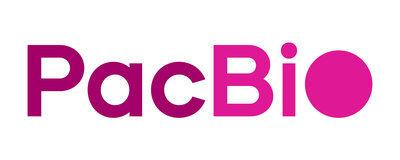PacBio and International Research Consortium CoLoRS Announce Release of First-Ever HiFi Long-Read Variant Database
Rhea-AI Summary
PacBio (NASDAQ: PACB) and the international Consortium for Long-Read Sequencing (CoLoRS) have launched the first publicly available HiFi long-read variant frequency database. This database, globally representative and free, addresses critical gaps in rare disease research by providing access to genetic variants undetectable through short-read sequencing.
Notably, long-read sequencing detects 15,000 more structural variants and 300,000 more small variants than short-read methods. The CoLoRS database, incorporating data from nearly 1,000 long-read genomes, aids in understanding complex genetic variations and their disease implications. This initiative supports significant advancements in oncology, rare diseases, and genetic disorders research.
Positive
- First publicly available HiFi long-read variant frequency database launched.
- Database addresses gaps in rare disease research by providing access to undetectable genetic variants.
- Long-read sequencing detects 15,000 more structural variants (SVs) and 300,000 more small variants compared to short-read methods.
- CoLoRS database incorporates data from nearly 1,000 long-read genomes.
- Supports advancements in oncology, rare diseases, and genetic disorders research.
- Collaboration with top clinical and academic institutions enhances data accuracy and utility.
- PacBio's HiFi sequencing technology underpins the database, showcasing its unique capabilities.
Negative
- No immediate financial benefit or revenue generation from the free database release.
- Potentially high costs involved in developing and maintaining the database and sequencing technology.
- May face challenges in ensuring continuous global representation and comprehensive data integration.
- Reliance on external research community for widespread adoption and utilization of the database.
News Market Reaction
On the day this news was published, PACB declined 5.97%, reflecting a notable negative market reaction.
Data tracked by StockTitan Argus on the day of publication.
Consortium Delivers Publicly Available Datasets that Enrich Detection of Rare and Novel Genetic Variants for Advances in Human Disease Research
"Joining forces with PacBio has enabled us to leverage their HiFi sequencing capabilities, enhancing the depth and accuracy of the genomic data we can offer to the research community," said Michael Schatz, Bloomberg Distinguished Professor at Johns Hopkins University. "This effort complements existing databases such as gnomAD, as long reads enable much greater sensitivity and precision for complex variants (SVs) and tandem repeats. The CoLoRS database is a tremendous step forward in our collective effort to understand complex genetic variations and their implications in disease."
Studies have shown that long-read sequencing finds 15,000 more structural variants (SVs) and 300,000 more small variants than short reads. SVs are crucial as they account for much of the genetic diversity between humans and are associated with disease pathogenesis. The CoLoRS database integrates data from nearly 1,000 long-read genomes, providing detailed insights into human variation and improving the detection of complex variants and tandem repeats. This resource is developed by a global coalition from top clinical and academic institutions, pooling diverse long-read genome data from various research projects.
"We are thrilled to see the launch of the CoLoRS database, a pivotal development in genomics research," said Christian Henry, President, and Chief Executive Officer of PacBio. "This collaboration with the CoLoRS members exemplifies our commitment to supporting the scientific community with tools that enhance the accuracy and utility of genetic research. It also demonstrates the unique capabilities of our HiFi sequencing technology. By making this information accessible to the public, we are empowering researchers around the world to make significant advances in areas such as oncology, rare diseases, and genetic disorders."
Researchers are invited to access the CoLoRS database and explore its capabilities at www.colorsdb.org. Supported by PacBio's HiFi sequencing technology, this platform provides researchers with new insights into human genomic variation, accelerating advancements in critical areas of medical research.
About PacBio
PacBio (NASDAQ: PACB) is a premier life science technology company that designs, develops, and manufactures advanced sequencing solutions to help scientists and clinical researchers resolve genetically complex problems. Our products and technologies stem from two highly differentiated core technologies focused on accuracy, quality and completeness which include our HiFi long-read sequencing and our SBB® short-read sequencing technologies. Our products address solutions across a broad set of research applications including human germline sequencing, plant and animal sciences, infectious disease and microbiology, oncology, and other emerging applications. For more information, please visit www.pacb.com and follow @PacBio.
PacBio products are provided for Research Use Only. Not for use in diagnostic procedures.
Forward-Looking Statements
This press release may contain "forward-looking statements" within the meaning of Section 21E of the Securities Exchange Act of 1934, as amended, and the
Contacts
Investors:
Todd Friedman
ir@pacificbiosciences.com
Media:
pr@pacificbiosciences.com
![]() View original content to download multimedia:https://www.prnewswire.com/news-releases/pacbio-and-international-research-consortium-colors-announce-release-of-first-ever-hifi-long-read-variant-database-302167449.html
View original content to download multimedia:https://www.prnewswire.com/news-releases/pacbio-and-international-research-consortium-colors-announce-release-of-first-ever-hifi-long-read-variant-database-302167449.html
SOURCE Pacific Biosciences of California, Inc.








